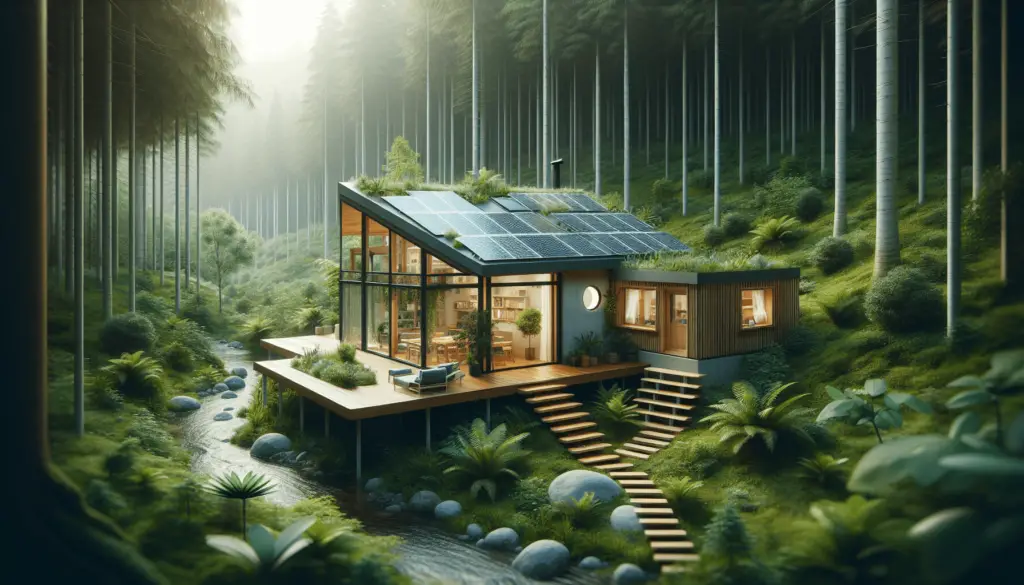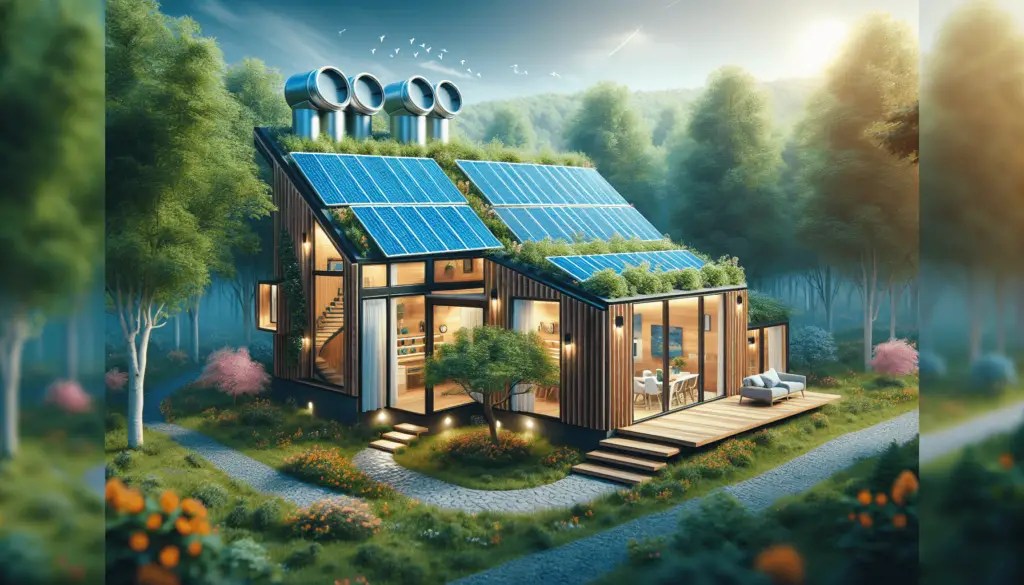Thinking About Going Off the Grid?
So, you’re considering designing and building a sustainable off-grid home. That’s a great idea! Living off the grid can give you more independence, reduce your environmental impact, and save you money on utility bills in the long run. But before you jump into the planning and construction process, there are a few key things to consider.
Location, Location, Location
The first step in designing and building a sustainable off-grid home is choosing the right location. You’ll need to find a piece of land that’s suitable for off-grid living, with access to sunlight for solar panels, clean water sources, and enough space for a septic system if needed. Consider factors like climate, local regulations, and proximity to amenities like grocery stores and hospitals.
Set Your Budget
Designing and building a sustainable off-grid home can be a significant investment, so it’s important to set a budget early on in the process. Consider factors like the cost of land, materials, labor, and permits. You may also want to factor in ongoing expenses like maintenance, utilities, and insurance. Setting a realistic budget will help you stay on track and avoid overspending.
Designing Your Off-Grid Home
Once you’ve chosen a location and set your budget, it’s time to start designing your sustainable off-grid home. The design phase is critical, as it will determine the layout, size, and features of your home. Here are a few key things to consider during the design process.
Energy Efficiency
Energy efficiency is one of the most important factors to consider when designing a sustainable off-grid home. To minimize your energy consumption and reliance on external sources, consider incorporating features like high-efficiency insulation, energy-efficient appliances, and passive solar design. You may also want to explore renewable energy sources like solar panels, wind turbines, or micro-hydro systems.
Water Management
Water management is another critical aspect of designing a sustainable off-grid home. Depending on your location and water availability, you may need to consider rainwater harvesting, greywater recycling, or installing a well. It’s essential to design a water system that meets your needs while minimizing waste and impact on the environment.
Waste Management
Proper waste management is essential for off-grid living. You’ll need to design a system for managing both solid and liquid waste, such as composting toilets, septic tanks, or greywater filtration systems. Consider the environmental impact of your waste management system and choose options that minimize pollution and support sustainable living.
Building Your Off-Grid Home
After you’ve finalized the design of your sustainable off-grid home, it’s time to start the construction process. Building an off-grid home requires careful planning, coordination, and attention to detail. Here are a few key things to keep in mind during the construction phase.
Sustainable Materials
When building a sustainable off-grid home, it’s essential to choose environmentally-friendly materials that minimize waste and reduce your carbon footprint. Look for materials like reclaimed wood, recycled steel, bamboo, and low-VOC paints and finishes. Not only will sustainable materials help protect the environment, but they can also contribute to a healthier indoor environment for you and your family.
Off-Grid Utilities
One of the biggest challenges of building an off-grid home is setting up utilities without relying on traditional infrastructure. You’ll need to install systems for generating and storing electricity, managing water supply, and treating waste. Consider working with experienced professionals to ensure that your off-grid utilities are designed and installed correctly.
Disaster Preparedness
Living off the grid can come with unique challenges, such as extreme weather events, natural disasters, and power outages. When designing and building your off-grid home, it’s essential to plan for these scenarios and implement measures to protect your home and family. Consider features like backup power systems, sturdy construction materials, and emergency supplies to ensure that you’re prepared for any situation.

Off-Grid Living: Maintenance and Upkeep
Once your sustainable off-grid home is built and you’ve moved in, the work isn’t over. Living off the grid requires ongoing maintenance and upkeep to ensure that your home continues to operate smoothly and efficiently. Here are a few key things to keep in mind as you settle into off-grid living.
Regular Inspections
Regular inspections are essential for off-grid homeowners to identify maintenance issues early and prevent costly repairs down the line. Schedule regular inspections of your solar panels, water systems, and waste management systems to ensure that everything is functioning correctly. Consider keeping a maintenance log to track inspections, repairs, and upgrades.
Energy Conservation
Conserving energy is crucial for off-grid living, as it can help reduce your reliance on external power sources and lower your utility bills. Implement energy-saving practices like turning off lights when not in use, using energy-efficient appliances, and taking advantage of natural light whenever possible. Consider investing in energy monitoring systems to track your energy usage and identify areas where you can cut back.
Community Support
Living off the grid can be challenging, especially if you’re new to the lifestyle. Consider reaching out to local off-grid communities, online forums, or social media groups for support, advice, and camaraderie. Building relationships with other off-grid homeowners can provide valuable insight, resources, and a sense of community as you navigate the ups and downs of off-grid living.
Conclusion
Designing and building a sustainable off-grid home is a rewarding and challenging experience that requires careful planning, hard work, and dedication. By considering factors like location, budget, design, construction, maintenance, and community support, you can create a home that meets your needs while minimizing your impact on the environment. Whether you’re looking to reduce your carbon footprint, save money on utility bills, or live a more independent lifestyle, off-grid living can offer a unique opportunity to connect with nature and embrace a simpler way of life. So, what are you waiting for? Start planning your sustainable off-grid home today!

